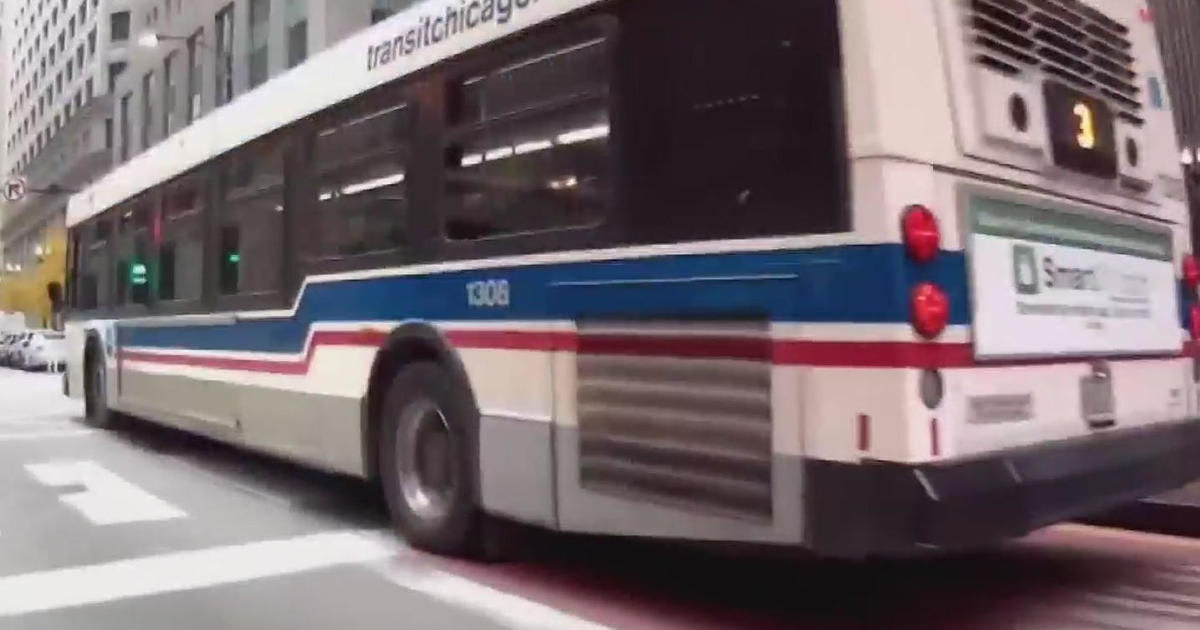Safety Officials Prepare For Evacuation of Chicago If Disaster Hits
(CBS) -- Chicago is home to millions of people and we know it could be a target for terrorists. If a catastrophic event occurred would we be able to evacuate the area and care for the injured? CBS 2's Kris Gutierrez went out to find the answers.
Imagine an improvised nuclear device going off in downtown Chicago. Immediately more than five million people are in danger.
It's a scenario state and local emergency officials have been quietly studying for the past six years.
Gary Kulhan, Chair of Cook County's Local Emergency Planning Committee, says, "Number one.. you lose all of your communications if a nuclear device were to go off. Number two, you're going to have roughly 200,000 burn victims. You're going to lose two hospitals downtown immediately."
And, how do you get the injured and survivors out of the city?
Transportation evacuation studies reveal 660,000 people would need to get out immediately, but the already jammed expressway system can only handle 180,000 cars in three hours.
Jonathon Monken, Director of the Illinois Emergency Management Agency says, "We have multiple evacuation plans that have been developed, but all of them really recognize that capacity would be a problem."
Some of those plans include ferrying people across Lake Michigan and relying on commuter trains. But Union Station is packed when ordinary Metra delays occur.
"You can imagine what controlled civil disturbance would look like if you have thousands of people that are trying to get on a train and you can only get a few hundred on each one," said Monken.
Officials also learned that in some cases, evacuation may not be the best option at all.
"Sheltering in place in a nuclear event for the first 24 hours when the radioactive fallout is the strongest, would actually save more lives than anything else we could possibly do," said Monken.
The nuclear disaster scenario was studied by the Regional Catastrophic Planning Team.
Experts from 16 counties in Illinois, Indiana and Wisconsin are on the team which received more than $14 million in federal funding. Among the program's priorities? Educating citizens.
Chicago resident, Jessica Murphy says, "Everybody should know about it." But, she doesn't.
The group has identified regional hubs where people can evacuate to. They include Valparaiso University, Benedictine University and Northern Illinois University. But does anyone know about them?
Murphy says, "I'd try to go to the safest place everyone else is going, I don't know."
Where is that? Murphy says, "I don't know. I guess I should."
Kent McKenzie leads Lake County, Illinois' Emergency Management office.
"I would be surprised if you could find anyone that knows exactly what they're supposed to do, my fellow emergency managers included," McKenzie said.
The regional team has come up with a "Gear Up, Get Ready" website that focuses on preparing for smaller emergencies such as floods and tornadoes.
"I think the biggest takeaway is that when it comes to emergency preparedness, it's really an individual and family responsibility. Government can't do it all," McKenzie said.
The heads of Chicago's Office of Emergency Management and Cook County Department of Homeland Security declined our request for an interview. But in a joint statement say: "The Regional Catastrophic Incident Coordination Plan was developed under the direction of the Federal Emergency Management Agency (FEMA) with funding made available through the Regional Catastrophic Planning Grant Program (RCPGP). The plan participants include the City of Chicago and Cook County, as well as 9 other Illinois counties, five counties in Indiana and one in Wisconsin.
The primary focus of the Chicago Office of Emergency Management (OEMC) and the Cook County Department of Homeland Security and Emergency Management (DHSEM) is ensuring the safety and the security of our residents. We also realize that incidents – whether manmade or natural – do not take jurisdictional boundaries into account. As such, and under the leadership of Mayor Rahm Emanuel and President Toni Preckwinkle, we have worked diligently to cultivate strong partnerships with each other, surrounding counties, the state of Illinois and the federal government.
Working together, we undertake joint threat and hazard assessments and work to formulate a variety of plans to address multiple issues, to include hazard mitigation planning, while also participating in collaborative trainings and exercises with our partners each year.
Because there are many unknown variables surrounding a potential incident, no one plan can possibly address all contingencies. Because of that, we have adopted FEMA's "all-hazards, whole-community" approach, developing tools and resources as well as planning and training principles that would be relevant in a variety of incidents.
We also stress that our residents must prepare for incidents as well. If a large-scale incident occurs in our urban area, residents must be prepared to be self-sufficient for a period of time after a disaster. We encourage residents to develop a family emergency plan that takes into account the needs of all members – children, seniors, those with disabilities and pets - and includes alternate meeting/shelter locations and contact information for family and friends."
For more information, visit www.ready.gov, www.illinois.gov/ready and gearupgetready.org.



